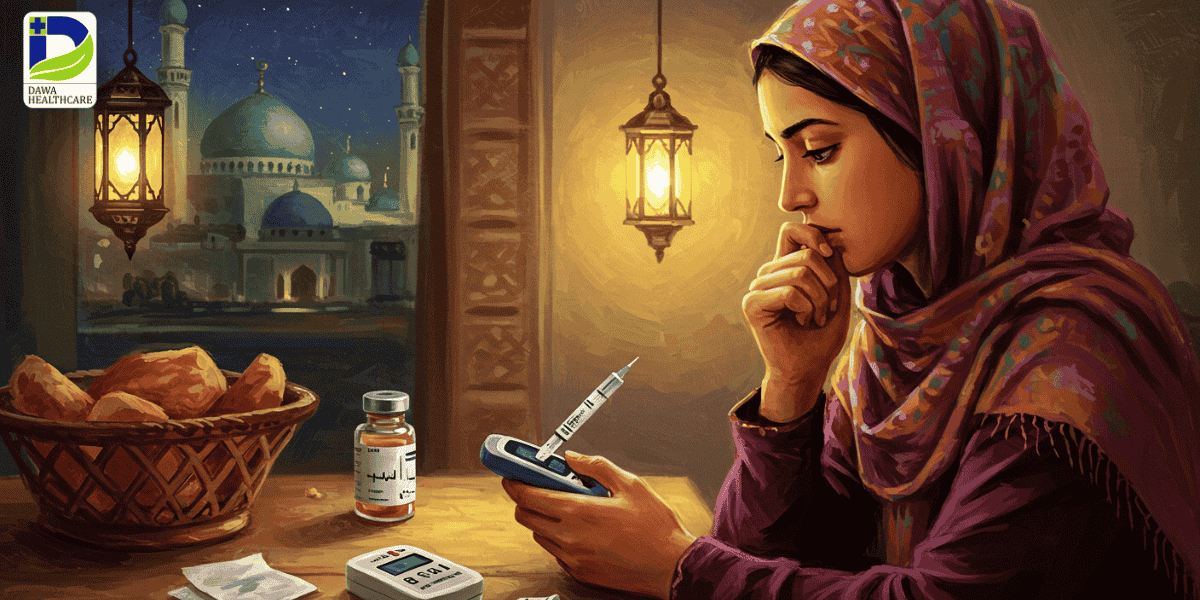
INSULIN MANAGEMENT FOR DIABETIC PATIENTS IN RAMADAN
Fasting during Ramadan is a sacred practice observed by Muslims all over the globe. However, for diabetic patients, managing blood sugar levels while fasting presents unique challenges. Proper insulin management in Ramadan is crucial to prevent hypoglycemia, hyperglycemia, and other complications. With a well-structured approach, diabetic individuals can observe fasting safely while maintaining optimal health.
Can Diabetic Patients Fast in Ramadan?
The ability to fast during Ramadan depends on the individual's diabetes condition, type of treatment, and overall health. Patients with Type 1 diabetes, those with uncontrolled blood sugar levels, or those prone to frequent hypoglycemia are often advised against fasting. However, many Type 2 diabetic patients can fast safely under medical supervision, provided they follow a carefully designed insulin regimen and dietary plan.
Best Insulin Schedule for Diabetics in Ramadan
Adjusting insulin dosage and timing is essential to accommodate the fasting schedule. Here are some key guidelines:
-
Basal Insulin Adjustments:
Long-acting basal insulin
-
GLARGINE under the brands Toujeo, Basagine, Lantus
-
DETEMIR under the brand Levemir
Is usually required in lower doses during Ramadan to prevent nighttime hypoglycemia.
-
Bolus Insulin Modifications:
Mealtime (bolus) insulin doses should be adjusted based on food intake at Suhoor (pre-dawn meal) and Iftar (breaking of fast).
Rapid-acting insulin:
-
LISPRO under the brand Humalog.
-
ASPART under the brand Novorapid.
-
GLULISINE under the brand Apidra.
Is preferred at Iftar for managing post-meal spikes.
-
Mixed Insulin Regimens:
Patients on premixed insulin may need to switch to basal-bolus therapy or adjust the morning dose to Suhoor and the evening dose to Iftar.
Pre mixed insulin broadly includes:
-
70% NPH and 30% Regular insulin under the brand Humulin 70/30
-
5% Insulin Lispro and 75% Insulin Lispro Protamine under the brand Humalog Mix25
-
Continuous Glucose Monitoring (CGM): Using CGM or frequent blood glucose monitoring helps prevent severe fluctuations and allows timely insulin adjustments.
How to Control Blood Sugar While Fasting?
Maintaining stable blood sugar levels during fasting requires a combination of lifestyle modifications and medical supervision. Here are essential tips:
-
Monitor Blood Glucose: Regularly check blood sugar levels, especially before Suhoor, mid-day, before Iftar, and 2 hours after Iftar.
-
Stay Hydrated: Drink at least 2-3 liters of fluid between Iftar and Suhoor to prevent dehydration.
-
Balanced Diet: Avoid excessive carbohydrates and sugary foods at Iftar. Go for fiber-rich foods, lean proteins, and healthy fats to ensure a slow release of glucose.
-
Physical Activity: Moderate physical activity is beneficial but should be scheduled at non-fasting hours to prevent energy depletion.
-
Recognize Warning Signs: Be alert for symptoms of low blood sugar (shakiness, dizziness, sweating) and high blood sugar (fatigue, excessive thirst, frequent urination). If necessary, break the fast immediately to prevent complications.
Consultation with Healthcare Professionals
Diabetic patients considering fasting should consult a diabetologist, endocrinologist or pharmacist for personalized insulin management during Ramadan. You can easily consult at the In-house clinic of Dawa Healthcare Pharmacy offering expert guidance on insulin adjustments and dietary recommendations to ensure safe fasting. Additionally, for those requiring urgent medical supplies, Dawa Healthcare 24-hour online pharmacy in Karachi provides easy access to essential diabetes medications, including insulin and glucose monitoring devices.
By following a structured approach and seeking professional medical advice, diabetic patients can manage their blood sugar effectively while observing the spiritual essence of Ramadan.

